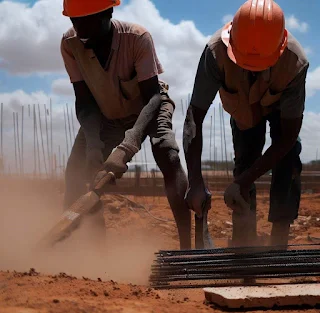China Building Roads in Africa is a Big Deal
China’s Belt and Road Initiative in Africa: Opportunities and Concerns
Updated August 2025 — China’s Belt and Road Initiative (BRI) is transforming trade and infrastructure across Africa. From railways and ports to energy grids and telecom networks, BRI projects promise growth but also raise questions about debt, transparency, and long-term influence.
Table of Contents
- BRI Overview
- Funding the Initiative
- Infrastructure and Connectivity
- African Involvement and Leadership
- USA Issues and Concerns
- African Issues and Concerns
- African Countries Participating
- Agencies and Entities Involved
- Impact and Outlook
Belt and Road Initiative: Overview
Launched by China in 2013, the Belt and Road Initiative aims to boost global connectivity through transportation corridors, energy pipelines, trade hubs, and cooperative agreements. Its name draws from the ancient Silk Road, once a vital link between East and West. Today’s BRI seeks to replicate that legacy with modern rail, maritime, and digital routes.
Funding the Belt and Road Initiative
BRI financing comes from multiple sources:
- Chinese policy banks such as the China Development Bank (CDB) and Export-Import Bank of China (EXIM).
- The Asian Infrastructure Investment Bank (AIIB) and the Silk Road Fund.
- State-owned enterprises (SOEs) investing in and building projects.
- Public-private partnerships and contributions from partner governments.
Estimates suggest that trillions of dollars could be invested over time to meet BRI’s goals of connectivity and shared development.
Infrastructure and Connectivity
Infrastructure is the cornerstone of BRI. China funds and constructs:
- Roads, railways, and shipping lanes.
- Ports and airports.
- Energy facilities — from hydropower to solar and gas.
- Telecommunications networks.
These projects aim to reduce transportation costs, improve market access, and create employment opportunities. African nations often fill critical gaps in logistics and power supply.
African Involvement and Leadership
African heads of state and ministers have adopted the BRI as a means to attract investment and develop modern infrastructure. Many have signed agreements with China, attended high-level forums, and aligned national development plans with BRI opportunities. Countries with key resources or geography — such as Kenya, Egypt, and Djibouti — seek to leverage the initiative to enhance continental trade and integration.
USA Issues and Concerns
The United States views China’s growing presence in Africa as part of a broader global strategic competition. Concerns include:
- Resource security and market dynamics linked to Chinese investment.
- Debt exposure and political leverage for Beijing.
U.S. programs like Power Africa (2013) promote electricity access, and PEPFAR (2003) supports public health, but their reach is narrower than BRI’s infrastructure network.
African Issues and Concerns
Across governments and civil society, several cautions are raised:
- Debt sustainability — guarding against heavy repayment burdens.
- Transparency — insisting on open contracts and fair bidding.
- Environment — preventing habitat loss and resource depletion.
- Local jobs — ensuring projects employ and train African workers rather than relying solely on foreign labor.
African Countries Participating in BRI
- Kenya: Standard Gauge Railway (SGR) between Nairobi and Mombasa.
- Ethiopia: Addis Ababa–Djibouti railway.
- Nigeria: Rail and port modernization talks.
- Egypt: Suez Canal Economic and Industrial Zones.
- South Africa: Cooperation on transport and logistics.
- Tanzania: Bagamoyo port and industrial zone.
- Uganda: Road and energy projects.
- Djibouti: Chinese-funded ports and shipping hubs.
- Zambia: Investments in roads, mining, and energy.
- Rwanda: Aviation and technology infrastructure.
- Senegal: Blaise Diagne International Airport expansion and roads.
Agencies and Entities Involved
BRI implementation involves institutions on both sides:
- China’s National Development and Reform Commission (NDRC) — plans and oversees BRI strategy.
- Chinese State-Owned Enterprises (SOEs) — finance and build railways, ports, and energy plants.
- African Union (AU) — coordinates dialogue with China.
- Regional blocs such as ECOWAS, SADC, and EAC integrate BRI into continental trade plans.
- National ministries, including finance, infrastructure, and foreign affairs, lead negotiations and supervision.
Impact and Outlook
The Belt and Road Initiative presents African nations with an opportunity to bridge infrastructure gaps and connect to global value chains. Its future depends on transparent agreements, careful debt management, and policies that maximize benefits for local communities while protecting ecosystems.





